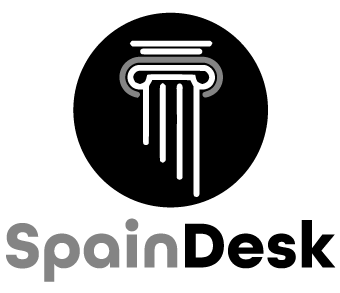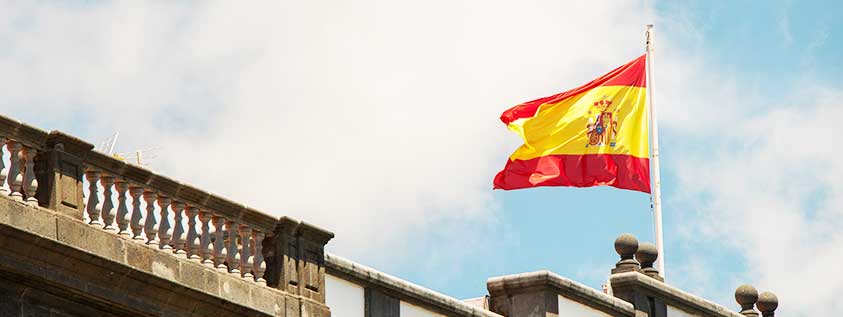Autónomo Tax in Spain: Types, Returns, and Deductions
Every person that is self-employed in Spain is required to pay autónomo tax in Spain. The autónomo tax consists of three parts. The income tax, the vat tax, and social security contributions.
Both income tax and vat tax are paid with a quarterly and annual tax return. Social security contributions are paid monthly. In this article, you will learn about the autónomo tax obligation, autónomo returns, and deductibles.
Every autónomo in Spain is responsible for preparing his/her annual income tax return. It is very common to transfer your annual tax return preparation to an accountant, this way you don’t have to worry about the deadlines and calculation of your autónomo tax in Spain. However, if you decide to prepare your autónomo return, it is important that you know and stays up-to-date with taxes in Spain that apply to you.
Content
Autónomo income tax Spain
When you are a freelancer or self-employed in Spain, your income is taxed at the same rate as other individuals in Spain. The rules of the personal income tax, also apply to you when you are self-employed in Spain. The Agencia Tributaria doesn’t have a different income tax rate for freelancers.
In Spain, there is a resident tax and a non-resident tax. You are a tax resident if you spend more than 183 days in Spain during a year. You are a non-resident for tax purposes if you spend less than 183 days in Spain during a year.
The income tax Spanish tax residents are paying is called the IRPF, it stands for Impuesto Sobre la Renta de las Personas Físicas. In Spain, freelancers are subject to a progressive tax rate. As a result, rates vary depending on how much money is earned.
Remember that different regions of Spain charge taxes at varying rates, so the rates differ across the country. For tax residents, income tax in Spain varies between 19 to 47%, according to income earned.
The income tax Spanish non-residents for tax purposes are paying is called the IRNR, it stands for Impuesto Sobre la Renta de no Residentes.
The amount of tax you have to pay as an autónomo in Spain depends on whether you are considered a tax resident or tax non-resident.
Get taxes done more quickly and efficiently with our tax services in Spain
Modelo 130: Quarterly income tax returns
Every quarter, you must submit this form to the Hacienda to declare your gross income and deductible expenses. If positive, small business owners must make a payment on account of their ultimate tax obligation.
Modelo 100: Annual income tax return ‘Renta’
The payments on account taken every three months will be used in calculating the final tax bill on this return. It is due by the 30th of June. Even if you are not required to complete an annual return, it can be useful to do so because then you know your income and expense figures for the full year.
When you have overpaid on your quarterly returns, you can claim a refund by completing this form. When there are additional taxes to be paid, the form is used to declare it.
The tax year in Spain comes to an end on December 31, and all autónomos must submit their Spanish and international earnings by June 30.
Autónomo VAT Tax Returns
Just like limited companies when you are an autónomo you also need to pay vat tax. The VAT tax rate in Spain is a fixed tax that you need to pay over the revenue you generate throughout the year. The vat tax is called IVA in Spain.
In Spain, the general VAT rate is 21%. Depending on the type of goods or services, the lower rates are 10%, or 4%, respectively. The VAT applies to all services rendered by freelancers, even if they are performed outside of Spain.
Goods and services that have a lower tax are items such as educational services, artistic endeavours, and some forms of independent writing.
VAT within the European Union
If you engage with business clients outside of Spain but within the EU, you may be eligible for VAT exemption. This is because they pay the VAT at their own country’s rate, not at yours.
If you plan on doing this, you’ll need to register with the Agencia Tributaria to get a tax identification number and submit quarterly reports regarding your intra-community business.
Modelo 303 and 390: Quarterly and Annual VAT returns
Autónomos must submit a quarterly report and pay any outstanding amounts. The quarterly VAT return called Modelo 303 is used for this. When you don’t have anything to declare, you still have to submit it.
It can be carried forward if the quarterly return results in a negative balance. Any refunds that you may receive can be applied to your account at the end of the year.
Social security contributions and benefits for self-employed workers in Spain
If you work as a self-employed individual (Autónomo), you are obligated to pay social security contributions. After you’ve paid into the scheme for 15 years, your contributions will be matched by the government, and you’ll receive a pension as well.
At the same time you register to pay income taxes and VAT, you must also register for social security. To receive your autonomous classification, you must complete a new form indicating your status. This is because several types of employment result in different social security payments, so if your work is considered hazardous, you will have to pay more in contributions. The Spanish Social Security system is comparable to the National Insurance program in the United Kingdom.
Even if you don’t earn anything, you must make payments to avoid being fined 10% of your bill. You will not be eligible to use public health facilities, get a pension or sick pay, or take paid parental leave if you do not make the required payments. Self-employed individuals who take maternity or paternity leave are not required to pay into Social Security, as they are not considered employees. They will however need to have at least 12 monthly payments.
Social security rates for freelancers
In 2021, the starting amount in Spain ranges from €944.40 to €4,070.10. This number is then multiplied by 30.6 per cent, resulting in a monthly payment of at least €288.98 (Autonomous- Employee Contribution). In other words, in 2021 the minimum contribution is 289 euros per month.
The more you pay into the scheme the more you will get. In other words, the amount of social security contributions paid is a factor in determining how much social security benefits are received.
The amount you pay in social security payments each month is calculated using the base salary amount and the multiplier to arrive at it. Social security payments are on a progressive scale, the more you earn, the more you will pay out over time.
Registering for freelancer tax in Spain
To become a freelancer in Spain, you must complete both phases of the procedure. The first step is to register with the tax agency (Agencia Tributaria or Hacienda). To do this, you must fill out Form 030, which is available from the government website.
You’ll need a Spanish national insurance number (An NIE) and a Spanish bank account for the autonomous registration. If you’re not from Europe, you’ll need a work visa or residency permit. You can have an immigration lawyer in Spain help you with this.
Then you must join the autonomous social security system (Regimen Especial de Trabajadores Autonomos or RETA). To enrol in the autonomous social security system (RETA), you must already be a member of the social security system.
You must be a resident of Spain to register for the Agencia Tributaria, so you must complete the Modelo 36 or Modelo 37 forms and submit them to the Hacienda.
The form requires you to state your name, address, and type of business activity. You must indicate where your firm is located and whether you will pay VAT in Spain.
You may want to hire a professional to assist you in becoming an Autónomo or with starting your business. We provide specialized company formation services in Spain, so make sure to get a free quote.
Costs that are deductible on Spanish Income Tax
Any expense that may be deducted is limited to your economic activity as a freelancer. This implies that you cannot deduct anything from your income taxes that may not be used to generate extra money through your day-to-day activities.
The most important aspect is to properly explain them. If you do not provide sufficient documentation, it will be much more difficult to argue their validity in the future.
You can still use goods and items for personal or family expenses, but they must be marked as such. In this case, these costs should not be deducted from your income tax liabilities.
Freelance tax deductions often apply to business expenses. However, other costs can be deducted from your income if they meet certain guidelines outlined by law.
Utility and supply expenses
If you work as a freelance from home, you may deduct 30% of your utility or supply expenses related to your business. These costs can be deducted from income, but you must be able to prove that these are related to your business.
The costs associated with the work’s location are deductible in the proportion of the m2 impacted and the percentage of ownership.
Food
The expenses of food for the company are deductible for income tax purposes if they are charged to a credit card and paid in a restaurant and catering business. This is the most crucial distinction because if a payment is made in cash, it will not be accepted. In Spain €26,67 per day is deductable, abroad that is €48,08.
Health insurance
The costs of health insurance premiums paid by taxpayers and their spouses or partners, as well as children under the age of 25 who live with them, are deductible to the extent they comply with these limits:
- € 500 for each individual
- € 1,500 in the case of disability
Expenses you can deduct entirely
Below you can find some key expenses that can be deducted in full from your income for tax purposes:
- Your monthly social security payment.
- Purchases of inventory or stocks made as a result of your company’s activities
- Supplies (such as pens, toner, and ink cartridges)
- Costs coming from advisor agencies (accountants, experts, tax advisors, or lawyers).
- Mail charges
- Bank charges for business accounts.
- ICT services (server, website, etc.)
- Costs for business travelling
- Any marketing or advertising expense
- Any expenses associated with retaining personnel, such as wages or educational costs
- You can also deduct the franchise fee if you have established a franchise.
- Expenses related to your office (for example rent)
There are more expenses related to your company you can deduct, but it is good to keep in mind that the expenses must be related to your business. You can best check with a tax advisor to see if your expense is deductible from your Autónomo tax in Spain.
It is important to keep the invoices of the expenses, as well as their date and location. You can then adjust these expenses when filing your annual income tax return.
Deductibles on VAT as an autónomo in Spain
The VAT quotas paid in the course of an economic operation are only deductible for supplies, services, or imports that are directly affected by the business activity and justifiable by invoice.
If something is only partially intended for your business, you can deduct a percentage of the VAT. This percentage is determined by your invoice and its related activity.
For example, in case the company buys a car. The company’s VAT obligations are based on the vehicle’s total mileage. If a car is used in your business, you can deduct any repairs, gasoline, tolls/fees, or parking charges at the same rate as your firm’s activities.
These quotas are deductible from VAT on income obtained during the same taxable period. It must be under the name and number of the taxpayer’s registry, as well as having an invoice of payment.
Frequently asked questions
Below you can find some of the most frequently asked questions about deductibles as an autónomo in Spain:
What invoices should I keep?
You must keep any invoice or receipt you receive from your supplier for any purchase. Any expense, such as gas or food, requires a receipt to be deductible.
How long do I have to keep my invoices?
It is required by the Tax Administration’s standards to maintain all invoices and documentation for at least four years. This is the tax statute of limitations, which allows the Treasury to undertake an audit and examine the employer or self-employed individual’s tax records for 4 years after declaration.
What expenses can I deduct?
Taxpayers may only deduct the business expenses they need to carry out their activity, which is exclusively related to it. Expenses that do not benefit your business cannot be deducted.
What is the difference between a Spanish autónomo and a company?
First of all, it is important to understand that there are two different kinds of Spanish companies: the limited liability company (S.L.) and the corporation (S.A.). It may be necessary to consult with a tax advisor in terms of which type of company will best suit your business structure.
Do I need an accountant as an Autonomo?
Yes, it is recommended that you keep your records and use an accountant in Spain to prepare your annual income tax return. It will be more secure and save you time and headaches.
Concluding the autónomo tax Spain
In this article, we have discussed the different taxes, deductions, and documentation in filing your taxes as an autónomo in Spain.
Keep in mind that the deductions must be related to your business, and not for personal use and that you keep your invoices saved securely.
Contact us if you would like help with filing your taxes. Our tax specialists can function as your tax advisor, accountant, bookkeeper, or simply help you file taxes online. We will create a quote tailored to your needs.
Disclaimer: Information on this page may be incomplete or outdated. Under no circumstances should the information listed be considered professional legal advice. We highly recommend seeking guidance from a legal expert if you lack extensive knowledge or experience dealing with any of the procedures outlined in these articles.
Get taxes done more quickly and efficiently with our tax services in Spain











